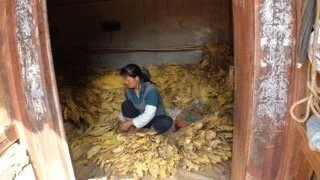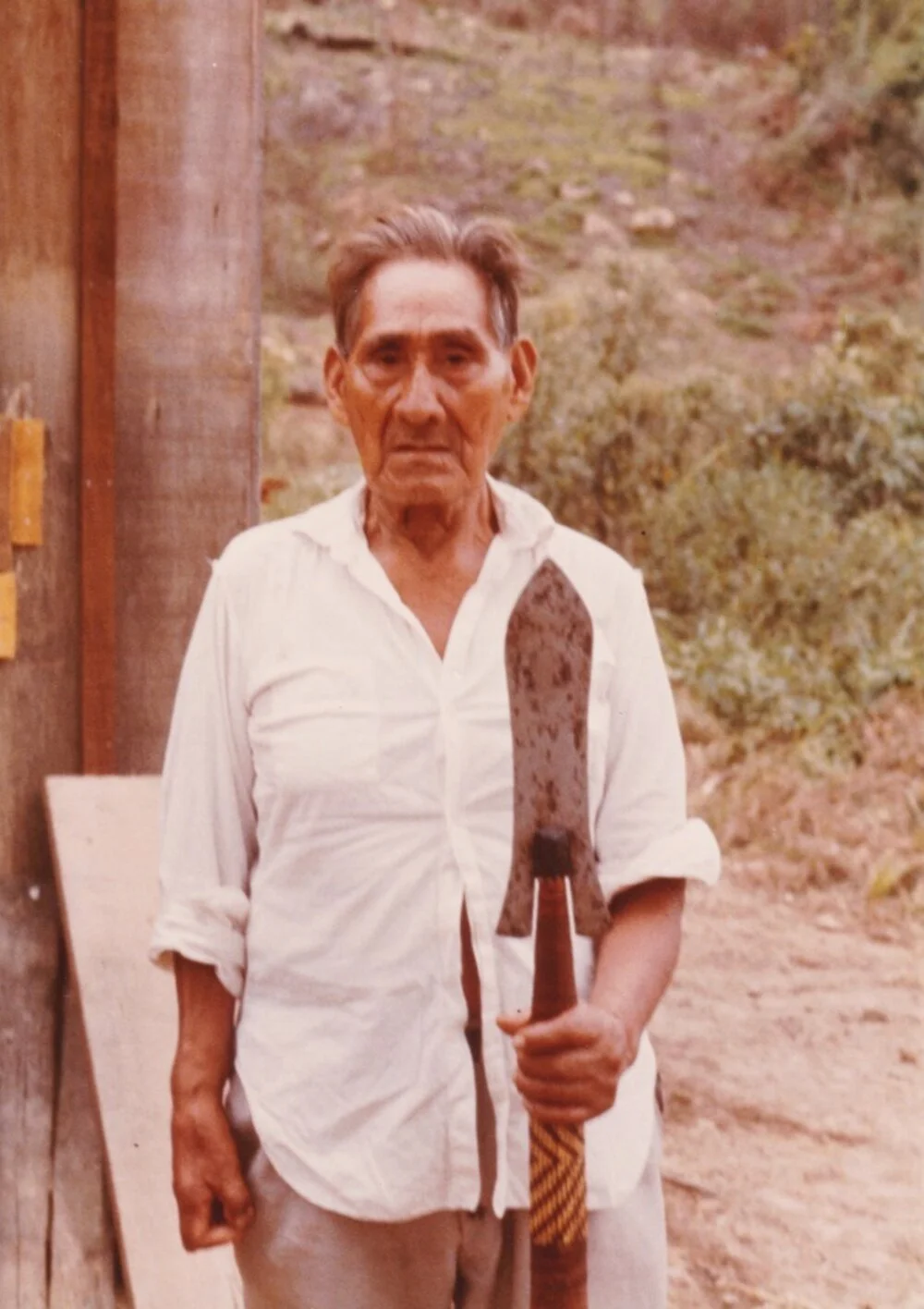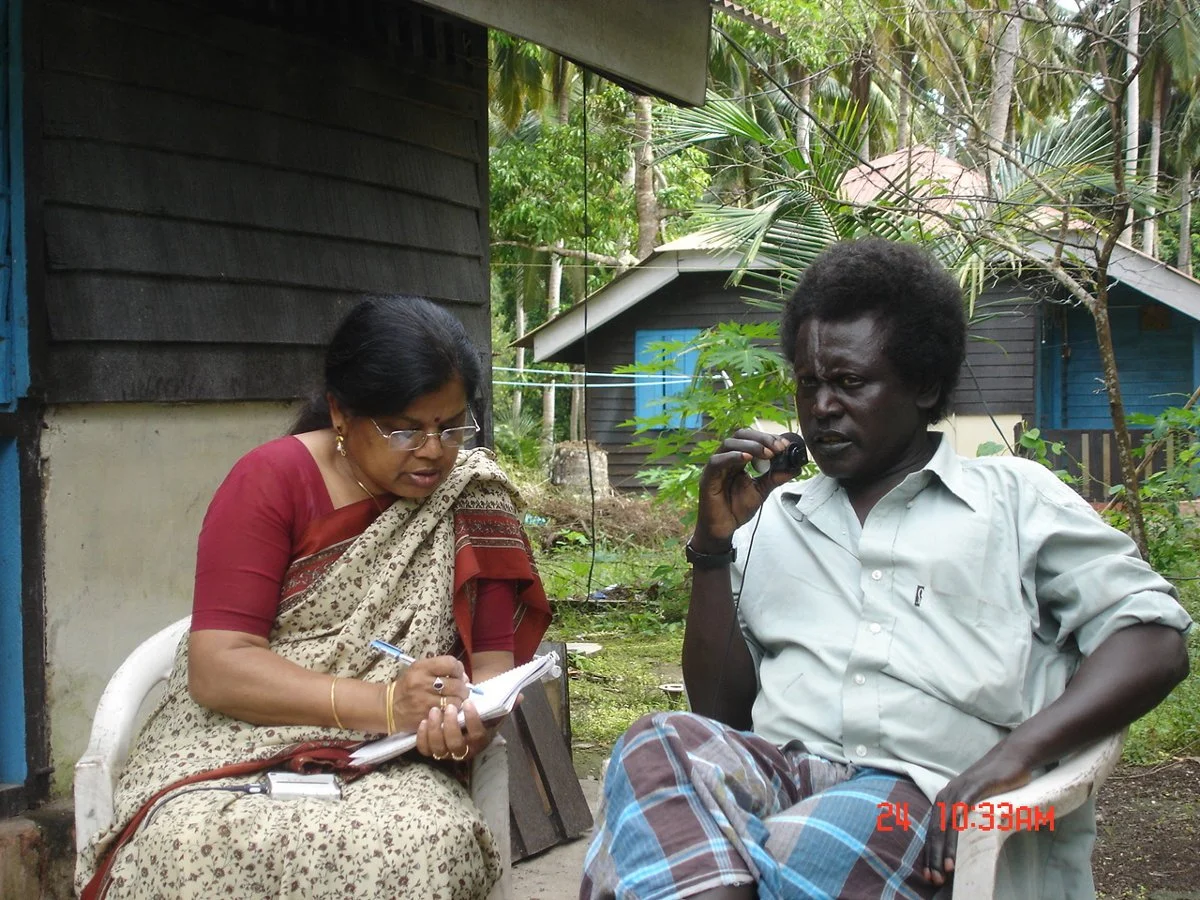STORIES
IN MEMORIAM
DÍLI DO MACUCO (... - 1983)
Culture and Language in Brief
February 22, 2017
Greg Urban
University of Pennsylvania
DÍLI-DO-MACUCO
A hole was torn in the fabric of indigenous Brazilian society on July 10, 1983, with the death of Díli Pènpèl, affectionately known as Díli of the Macuco.
Díli was the principal guardian of the traditional Laklãnõ-Xokleng culture of Santa Catarina. Probably born in the early 1890s, he witnessed the first peaceful contact between his people and the “white man” in 1914. He was the son of Kuzug Gaklã, the visionary leader of the Laklãnõ band, who guided his people through the traumatic years of the initial contact.
Díli of the Macuco (or Díli tõ vo in Laklãnõ-Xokleng) earned his nickname when he gave a macuco bird to an indigenous Kaingang girl named Kàwãn. She had come from Paraná to help the Brazilians in their attempts to “pacify” the Xokleng, and Díli was enraptured by her beauty. The story has been confirmed by Díli himself, among others.
Nanblá Gakran
For more than 60 years, Díli lived with his first wife, Wãñkome, who passed away a few years ago. Today, their children have assumed positions of importance in the Laklãnõ-Xokleng community.
In the almost 70 years since initial contact, the Xokleng have suffered enormous stresses from the Brazilian colonizers, who now occupy most of their traditional hunting territory. Catholic missionaries filled their minds with new ideas; a road was built through their reserve; and along with the road came Brazilian traders and diseases. Many young people have already lost interest in the traditional ways. During this whole traumatic period, one reference point remained steadfast, an anchor in a sea of changes. That anchor was Díli do Macuco.
During all these years, Díli never learned Portuguese, and people suspected it was a deliberate refusal. For Díli, the Laklãnõ language was a symbol of his identity. Only when I finally learned to converse in Laklãnõ-Xokleng was I able to realize the vastness of Díli’s knowledge. By 1981 and 1982, he was the only living Laklãnõ-Xokleng who could recite the entire origin myth by heart, and as I walked with him through the forests, I could see that the myth was still alive in him, shaping his vision and understanding of the world. It was as if the origin myth revealed a purpose amidst the chaos of change; the transformations were made intelligible as part of the natural processes of life.
In 1982 I was invited to give a lecture about the Xokleng at Blumenau University in Santa Catarina. I invited Díli to accompany me. While I addressed the formally attired audience, there was Díli, barefoot, wearing some old clothes I had brought him from São Paulo. Many years earlier, he had sacked the homes of Blumenau’s first colonizers. Now, here he was in the same place, the living embodiment of continuity with that past. After singing a traditional song, which was warmly applauded, Díli turned to me and said: “Tell them that we need blankets and clothing. Winter is coming and it will get cold. Please, do this for my people.” After his request, sixty blankets and countless bags of clothing were sent to the indigenous reserve.
Díli do Macuco has died, and a significant portion of traditional Laklãnõ-Xokleng culture has died with him. The Xokleng whom I have known were never particularly sentimental, always looking resolutely to the future, tirelessly in search of the new. In the words of the origin myth, we go forward “confronting our destiny.” Now, to our great sorrow, the Laklãnõ-Xokleng will have to confront that destiny without Díli.
Published in Revista de Antropologia, Vol. XXVII/XXVIII, São Paulo, 1984/1985.
CONTINUE READING STORIES



















